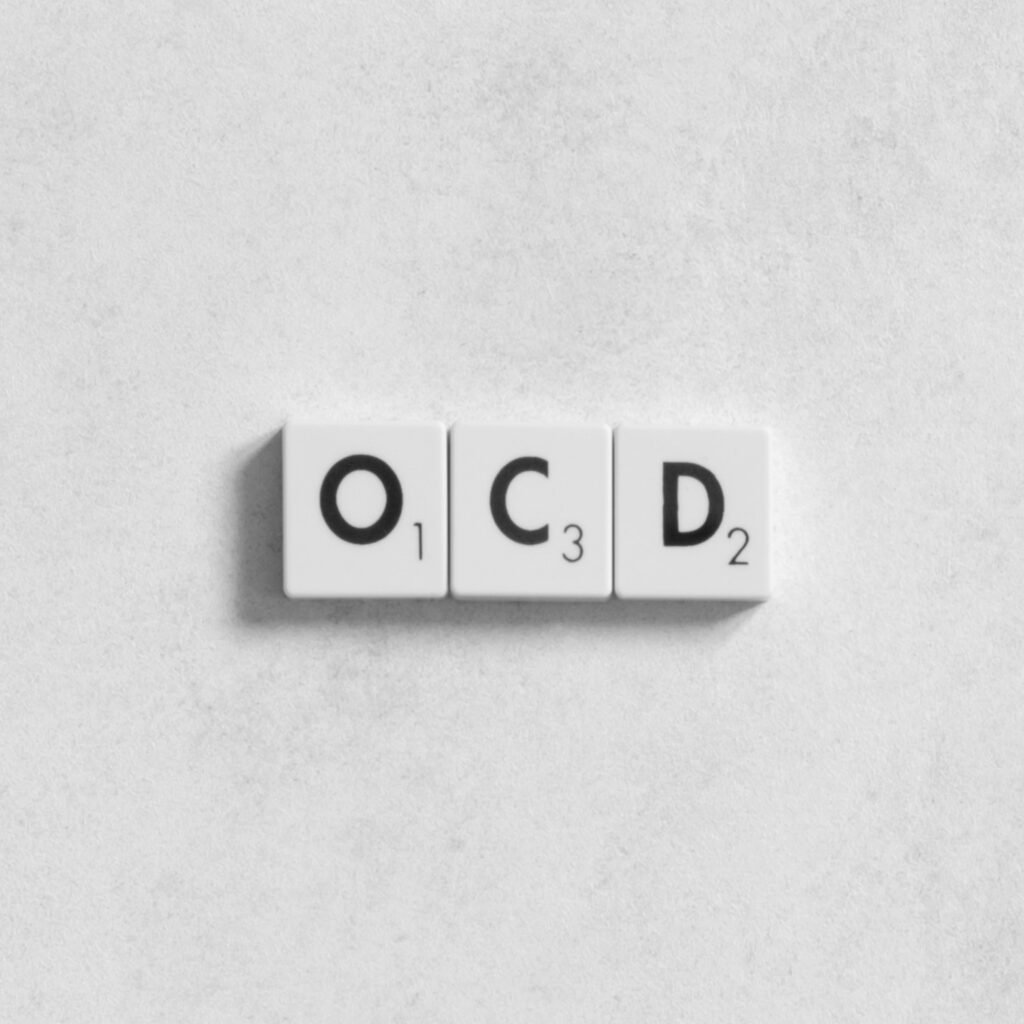As an Elf Economist, analysis on obsessive-compulsive dysfunction (OCD) doesn’t typically catch my consideration. Because the authors of a current paper in Complete Psychiatry level out, there’s comparatively little financial proof about OCD. Certainly, a fast search of PubMed reveals just 5 papers printed in 2023 that had been tagged with MeSH phrases for OCD and Economics, even supposing estimates for the prevalence of OCD might be as excessive as 3%.
OCD is characterised by recurring, undesirable ideas (obsessions) and repetitive behaviours (compulsions) that an individual feels pushed to carry out. These behaviours and ideas can considerably intervene with day by day actions and trigger misery.
Within the UK, OCD remedy follows a ‘stepped-care’ mannequin, beginning with cognitive behavioural remedy (CBT) or selective serotonin reuptake inhibitors (SSRIs; to be taught extra, read Alan Underwood’s 2016 Mental Elf blog). However inpatient care may additionally be wanted, at a a lot greater value to the well being service.
Understanding extra in regards to the cost-of-illness for OCD might assist to information the allocation of assets to analysis and care. As such, Kochar and colleagues (2023) performed a cost-of-illness (CoI) research, searching for to estimate the financial burden of OCD within the UK over one yr.

OCD ranks within the prime 10 for international neuropsychiatric incapacity burden, but little is thought in regards to the financial value of OCD to people or society.
Strategies
To estimate the full value of sickness for the UK, the researchers modelled youngsters, adults, and aged folks with OCD individually, making use of totally different charges of prevalence and severity and recognising the totally different remedy pathways for these teams. Prevalence and severity estimates had been derived from publicly accessible nationwide surveys and printed research on the distribution of severity in every group. The analysis is described as utilizing a ‘bottom-up’ method, that means that particular person value parts are added collectively, somewhat than teased aside from an estimate of complete expenditure.
Prices had been estimated individually for the totally different subpopulations. Along with the unit prices of NHS therapies, out-of-pocket bills and personal remedy prices had been thought-about, as was the worth of misplaced productiveness resulting from being much less in a position to work. Some inputs had been primarily based on professional opinion and the researchers sensibly relegated these to state of affairs evaluation.
Outcomes
The annual cost-of-illness for OCD within the UK was estimated at £378 million from the care supplier’s perspective. That’s £525 per individual with OCD.
When together with societal prices like misplaced productiveness, out-of-pocket bills, and personal remedy, the CoI rose dramatically to over £5 billion, averaging £7,077 per individual with OCD. This societal expense constituted 92% of the full CoI, underscoring the numerous financial impression past well being care prices. Misplaced productiveness alone – which was solely measured for adults – was valued at £4,797 per individual, or £3.5 billion for the inhabitants. On common, sufferers had been estimated to spend round £1,400 per yr on non-public remedy.
Price evaluation by age confirmed that adults bore the best well being care value total, as a result of greater prevalence of OCD, although the typical value of care was highest for kids (£651) as a result of extra common provision of pricy therapies like CBT. The severity of OCD additionally influenced the prices of care, with extreme instances producing extra prices on common: £902 for folks with extreme OCD and £174 for folks with gentle OCD signs.
Therapy-wise, SSRIs are cheap at round £48 per affected person, in contrast with care prices of £1,417 for every individual receiving CBT. On the different finish of the dimensions, sufferers who obtain inpatient care incur £8,658 per yr on common.
The state of affairs analyses and sensitivity analyses revealed that accounting for comorbid despair would greater than double the estimated value to the well being service, and an analogous magnitude of impact was discovered when presenteeism and caregiver productiveness losses had been accounted for.

The annual cost-of-illness for OCD within the UK (together with private bills) was estimated to be over £5 billion, which totals to roughly £7,077 per particular person identified with OCD. On common, sufferers spend about £1,400 per yr on non-public remedy.
Conclusions
- Regardless of comparatively little analysis into its financial impression, well being and care companies are estimated to spend round £378 million on look after folks with OCD within the UK.
- When broader societal prices are thought-about, the price of the sickness shoots to over £5 billion, or £7,077 per particular person with OCD.
- The analysis means that sufferers and wider society bear a better value than the NHS.

OCD can cut back productiveness by means of absenteeism, presenteeism (working much less successfully), and thru caregivers decreasing their hours; this value was estimated as better than the price to well being care companies just like the NHS.
Strengths and limitations
The authors take a comparatively conservative method, which I think about to be a power. They focus their base case evaluation on inputs about which they’ll have some confidence, specifically the prevalence and well being care prices estimates. Which means we will think about their headline estimate of £378 million to characterize a comparatively sturdy decrease sure for the prices related to OCD within the UK.
One other power of the research is that it breaks down estimates in line with age and severity, which not solely makes the findings extra informative but additionally makes it simpler for readers to sense-check the outcomes.
One main limitation of the research is its reliance on professional opinion for analyses past the bottom case, and the authors don’t do job of describing how they went about eliciting these professional opinions. We have no idea whether or not they used a recognised and validated framework, and the outcomes derived from these inputs (e.g., regarding comorbid despair and personal remedy) shouldn’t be thought-about sturdy.

While the authors take a comparatively conservative method with estimating the financial cosst (growing robustness), they’re imprecise about their reliance on professional opinions inside the analyses (reducing robustness). Clear reporting of strategies is important in figuring out reliability and validity.
Implications for follow
Price-of-illness research have a tendency to provide large numbers which are tough to interpret in isolation. Over time, we’ve written about comparable research for bipolar disorder, perinatal mental health problems, multimorbidity, and doubtless others. So what ought to we learn into these numbers?
Effectively, the authors make some comparisons with different psychological well being circumstances, noting that the price is decrease than cited prices for despair, however greater than these for anorexia. Personally, I might be very cautious of such comparisons, as an important determinant of variations may very well be methodological decisions, such because the time horizon, the inclusion and exclusion of various value classes, and approaches to stratifying the inhabitants.
The place research like this are most helpful is within the within-study comparisons that they facilitate. As an illustration, the dimensions of the price burden related to non-public remedy and out-of-pocket expenditure, at greater than £1,700 per individual per yr, is startlingly excessive, particularly compared to the price to the NHS of £525 per individual. The proof right here is weak, being primarily based on professional opinion, so it shouldn’t be accepted at face worth, however it does spotlight an necessary space for future analysis. Additional research might examine the frequency with which totally different teams of individuals with OCD are accessing non-public remedy, how a lot that is costing them, and the impression that it’s having on their lives.
General, this research makes case for the importance of the financial burden of OCD within the UK, and the findings ought to inform future methods for investments in related analysis and look after folks with OCD.

This research alerts the necessity for extra analysis to know the financial burden of OCD, notably on the person and caregivers.
Assertion of pursuits
None.
Hyperlinks
Major paper
Kochar, N., Ip, S., Vardanega, V., Sireau, N. T., & Fineberg, N. A. (2023). A cost-of-illness analysis of the economic burden of obsessive-compulsive disorder in the United Kingdom. Complete Psychiatry, 127, 152422.
Different references
Sampson, C. (2015). Do perinatal mental health problems cost the UK £8 billion per year? The Psychological Elf.
Sampson, C. (2015). Searching for the cost of bipolar disorder. The Psychological Elf.
Saunders, Okay., & Vereeken, S. (2023). The healthcare cost of multimorbidity in people with mental health diagnoses in Denmark. The Psychological Elf.
Underwood, A. (2016). Antidepressants and psychotherapy for OCD in adults: network meta-analysis. The Psychological Elf.

